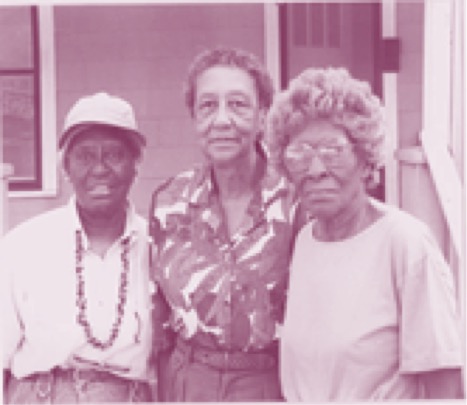“Never doubt that a small group of thoughtful, committed citizens can change the world. Indeed, it is the only thing that ever has.”— Margaret Mead
In 1987, the Food Pantry formed as a 501(c)(3) non-profit organization in response to the emergency food needs of Bastrop County residents. The Food Pantry celebrates its proud as a “Hunger Buster” food support center that responds immediately to individuals and families in a food crisis with a “no-wait, no red-tape” attitude.
It moved from its original location at 1002 Jefferson Street, to its current location at 1201 Pine Street in historic downtown Bastrop in May 1990. In August of that year, the Food Pantry inaugurated its Brown Bag program. In response to the growing needs of the community the Food Pantry opened the Jewell Hodges Support Center on March 3, 1995. The year 2001 ushered in a wave of changes at the Food Pantry. Mrs. Jewell Hodges, a Food Pantry founder who had faithfully served as the Food Pantry’s CEO since the beginning retired; in May 2002, Tresha Sanders-Silva, former prevention education coordinator for the Family Crisis Center, was named as Executive Director. Through her leadership, the Food Pantry continues to uphold its commitment to the community to supply emergency food while providing vital high-quality services to the families and individuals served by the Pantry. Continuing growth—in the numbers needing Food Pantry services and in the range of services promoted the addition of warehouse and office facilities at 806 Fayette Street in 2011. The Fayette Street site serves as the intake center for clients as well.
The Food Pantry’s Board of Directors (consisting of 5-15 individuals) from the community and an Advisory Council made up of 51 percent low-income residents of Bastrop create the policies for the Food Pantry, which has now grown to become a multi-service agency—committed to providing vital client services, in addition to food. They go beyond food distribution to include services which includes: counseling, advocacy, resource management education and referrals to other local agencies for additional support, such as job training. The Food Pantry runs a tight operation—primarily volunteer-driven with minimal paid staff.
 Jewell Hodges, Otha McDuff and Webbie Young, founders and former board members.
Jewell Hodges, Otha McDuff and Webbie Young, founders and former board members.